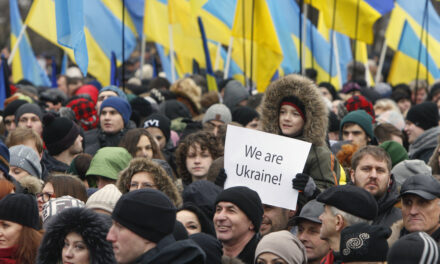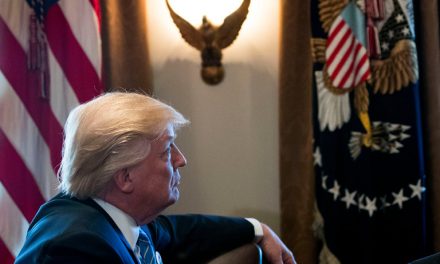The man who was succesfully defeated by the Israel lobby for an appointment in the Obama administration in 2009. A worthwhile read .. all of it!
Too Quick on the Draw: Militarism and the Malpractice of Diplomacy in America by Ambassador Chas W. Freeman, Jr.
The late Arthur Goldberg, who served on our Supreme Court and as U.S. ambassador to the United Nations, once said that “diplomats approach every question with an open . . . mouth.” No doubt that’s often true at the U.N., where parliamentary posturing and its evil twin, declaratory diplomacy, rule. But the essence of diplomacy is not talking but seeking common ground by listening carefully and with an open mind to what others don’t say as well as what they do, and then acting accordingly.
Diplomacy is how a nation advances its interests and resolves problems with foreigners with minimal violence. It is the nonbelligerent champion of domestic tranquility and prosperity. It promotes mutually acceptable varieties of modus vivendi between differing perspectives and cultures.
Diplomacy is the translation of national strategy into tactics to gain political, economic, and military advantages without the use of force. It is the outermost sentry and guardian of national defense. Its lapse or failure can bring war and all its pains to a nation.
But diplomacy is not just an alternative to war. It does not end when war begins. And when war proves necessary to adjust relations with other states or peoples, it is diplomacy that must translate the outcome of the fighting into agreed adjustments in relationships, crafting a better peace that reconciles the vanquished to their defeat and stabilizes a new status quo. By any measure, therefore, excellence in diplomacy is vitally important to the power, wealth, and well-being of the nation.
At its deepest level, diplomacy is a subtle strategic activity. It is about rearranging circumstances, perceptions, and the parameters of international problems so as to realign the self-interest of other nations with one’s own in ways that cause them to see that it is in their interest to do what one wants them to do, and that it’s possible for them to do it without appearing to capitulate to any foreign power or interest. Diplomacy is about getting others to play our game.
Judging by results in the complex post-Cold War environment, diplomacy is something the United States does not now understand or know how to do. I want to speak with you today about some of the beliefs and practices that account for America’s bungling of foreign policy in recent years. I will end by offering a few thoughts about how we might do better.
A new Cold War and Reset of Nuclear Armageddon Fear
Continued below the fold …
Since the fall of the Soviet Union liberated Americans from our fear of nuclear Armageddon, the foreign policy of the United States has come to rely almost exclusively on economic sanctions, military deterrence, and the use of force. Such measures are far from the only arrows in the traditional quiver of statecraft. Yet Americans no longer aim at leadership by example or polite persuasion backed by national prestige, patronage, institution building, or incentives for desirable behavior. In Washington, the threat to use force has become the first rather than the last resort in foreign policy. We Americans have embraced coercive measures as our default means of influencing other nations, whether they be allies, friends, adversaries, or enemies.
For most in our political elite, the overwhelming military and economic leverage of the United States justifies abandoning the effort to persuade rather than muscle recalcitrant foreigners into line. We habitually respond to challenges of every kind with military posturing rather than with diplomatic initiatives directed at solving the problems that generate these challenges. This approach has made us less – not more – secure, while burdening future generations of Americans with ruinous debt. It has unsettled our allies without deterring our adversaries. It has destabilized entire regions, multiplied our enemies, and estranged us from our friends.
South America no longer defers to us. Russia is again hostile. Europe questions our judgment, is audibly disturbed by our belligerence, and is distancing itself from our leadership. A disintegrating Middle East seethes with vengeful contempt for the United States. Africa ignores us. Our lust for India remains unrequited. China has come to see us as implacably hostile to its rise and is focused on countering our perceived efforts to hem it in. Japan is reviewing its inner samurai.
…In recent years, the United States has killed untold multitudes in wars and counterterrorist drone warfare in West Asia and North Africa. Our campaigns have spilled the blood, broken the bodies, and taken or blighted the lives of many in our armed forces, while weakening our economy by diverting necessary investment from it. These demonstrations of American power and determination have inflicted vast amounts of pain and suffering on foreign peoples. They have not bent our opponents to our will. Far from yielding greater security for us or our allies, our interventions – whether on the ground or from the air — have multiplied our enemies, intensified their hatred for us, and escalated the threat to both our homeland and our citizens and friends abroad.
…
So Americans have no recent experience of ending wars through negotiation with those we have vanquished, as has been the norm throughout human history. Our national narrative inclines us to equate success in war with smashing up enemies enough to ensure that we can safely deny them the dignity of taking them seriously or enlisting them in building a peace. Our wars are typically planned as military campaigns with purely military objectives, with little, if any, thought to what adjustments in foreign relations the end of the fighting might facilitate.…
Our habit of failing to define specific political objectives for our military also means that, in our case, war is less “an extension of politics by other means” (as Clausewitz prescribed) than a brutally direct way of punishing our foes linked to no clear conception of how they might take aboard the lessons we imagine they should draw from the drubbing we give them. Our chronic inattention to the terms of war termination means that U.S. triumphs on the battlefield are seldom, if ever, translated into terms that reward military victory with a stable peace.…
In Iraq, we were guided by the historically induced, peculiarly American presumption that war naturally culminates in the unconditional surrender and moral reconstruction of the enemy. The Department of State was excluded from all planning. The notion that a political process might be required for war termination on terms that could reconcile the enemy to its defeat never occurred to the White House or DOD. Afghanistan, Bosnia, Kosovo, and Libya [why not add Syria– Oui] offer different but analogous examples of Washington’s blindness or indifference to the utility of diplomacy in translating battlefield results into political results. As a result, our military interventions have nowhere produced a better peace. We Americans do not know how to conclude our wars.[Read on …]
National Intelligence Council appointment controversy (Wikipedia)
Steve J. Rosen, a former top official at the American Israel Public Affairs Committee (AIPAC) conducting the “opening salvo” according to professor John Mearsheimer. The Zionist Organization of America [ZOA] called for rescinding “the reported appointment”. Representative Steve Israel wrote to the Inspector General of the Office of the DNI calling for an investigation of Freeman’s “relationship with the Saudi government” given his “prejudicial public statements” against Israel.
“The libels on me and their easily traceable email trails show conclusively that there is a powerful lobby determined to prevent any view other than its own from being aired. The tactics of the Israel lobby plumb the depths of dishonour and indecency and include character assassination, selective misquotation, the wilful distortion of the record, the fabrication of falsehoods, and an utter disregard for the truth.”… “The aim of this lobby is control of the policy process through the exercise of a veto over the appointment of people who dispute the wisdom of its views, the substitution of political correctness for analysis, and the exclusion of any and all options for decision by Americans and our government other than those that it favours.”
After his withdrawal Freeman gave an interview to Robert Dreyfuss in The Nation saying he regretted he did not identify his attackers as “right-wing Likud in Israel and its fanatic supporters here”–what he called the “ (Avigdor) Lieberman lobby“. He also said that President Obama may have been able to deflect the attacks from Democrats if he had stepped in sooner, but also acknowledged that he and the National Intelligence Council still “would have been subjected to a slanderous attack”, making the job near impossible. He said that these attacks were meant to dissuade other critics of Israel from accepting government positions, but he had received messages from a number of Jews who also disagreed with Israel’s policies.
In an interview with Fareed Zakaria on CNN [video] he repeated many of the same points, adding a defense of past comments about the September 11 attacks, saying that the United States’ past actions had “catalyzed–perhaps not caused, but catalyzed–a radicalization of Arab and Muslim politics that facilitates the activities of terrorists with global reach”. He stated he was “deeply insulted” by those charging antisemitism and that he had a “great respect for Judaism and its adherents”. He also said Saudi Arabia has “definitely been successfully vilified in our politics”, despite efforts by the current Saudi king to reform his country and promote peace with Israel. He ended by expressing optimism about President Obama saying he has a “strategic mind” and that what America needs is a “strategic review of the policies that have brought us to this sorry pass in which we now find ourselves–not just in the Middle East, but in many other places, as well.
Saudi Advocate to Run the National Intelligence Council? by Jeffrey Goldberg | The Atlantic |






